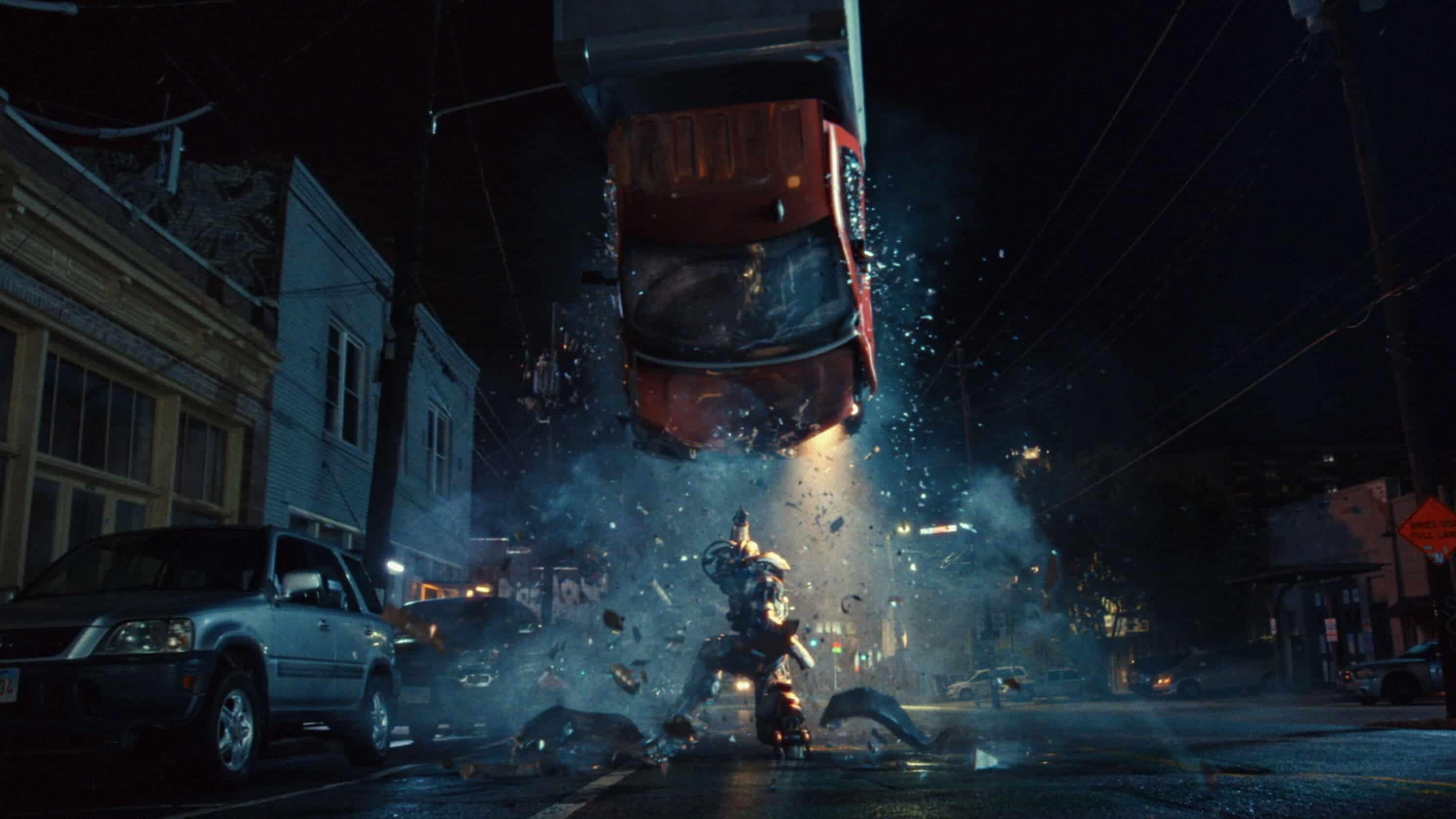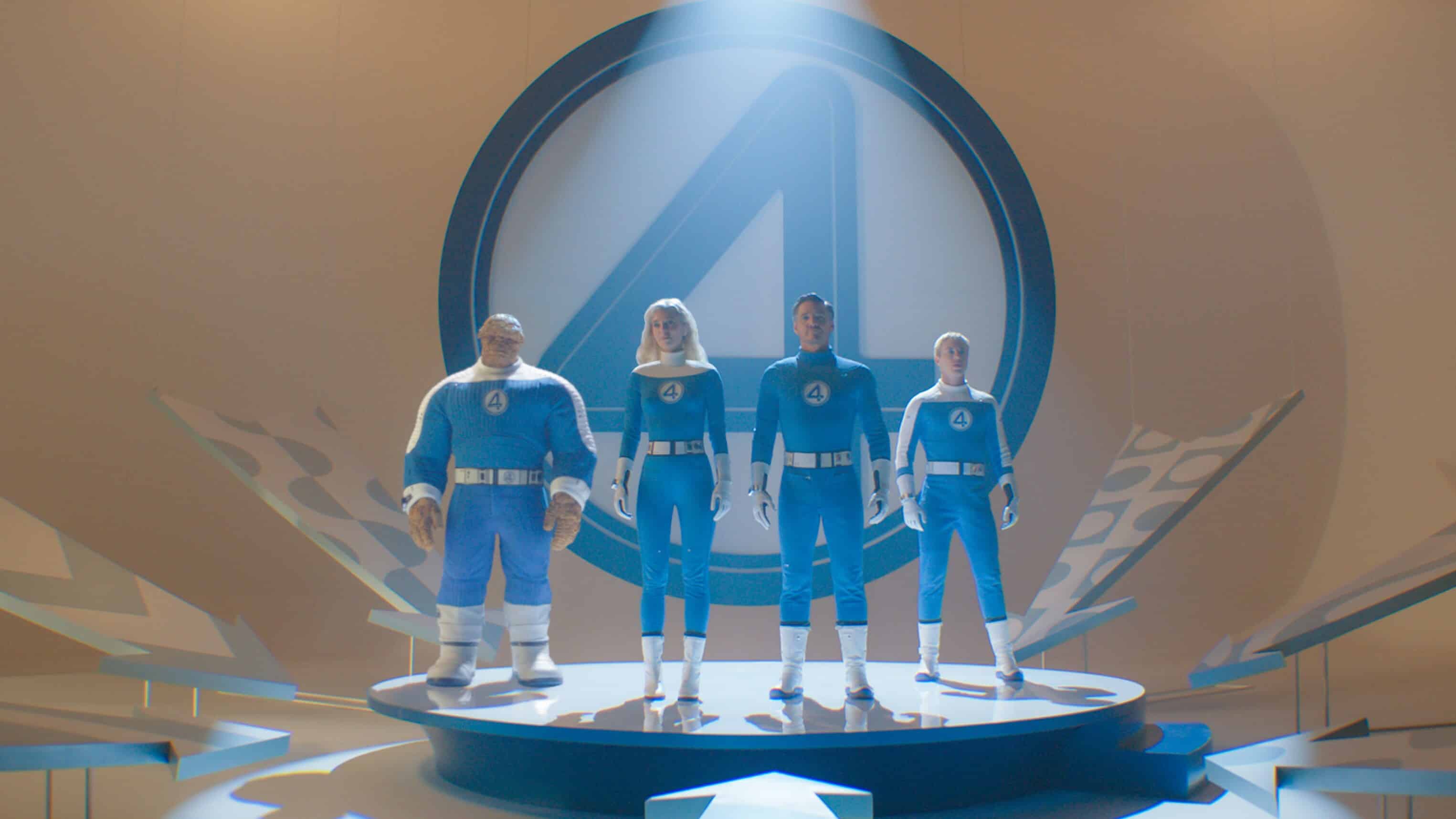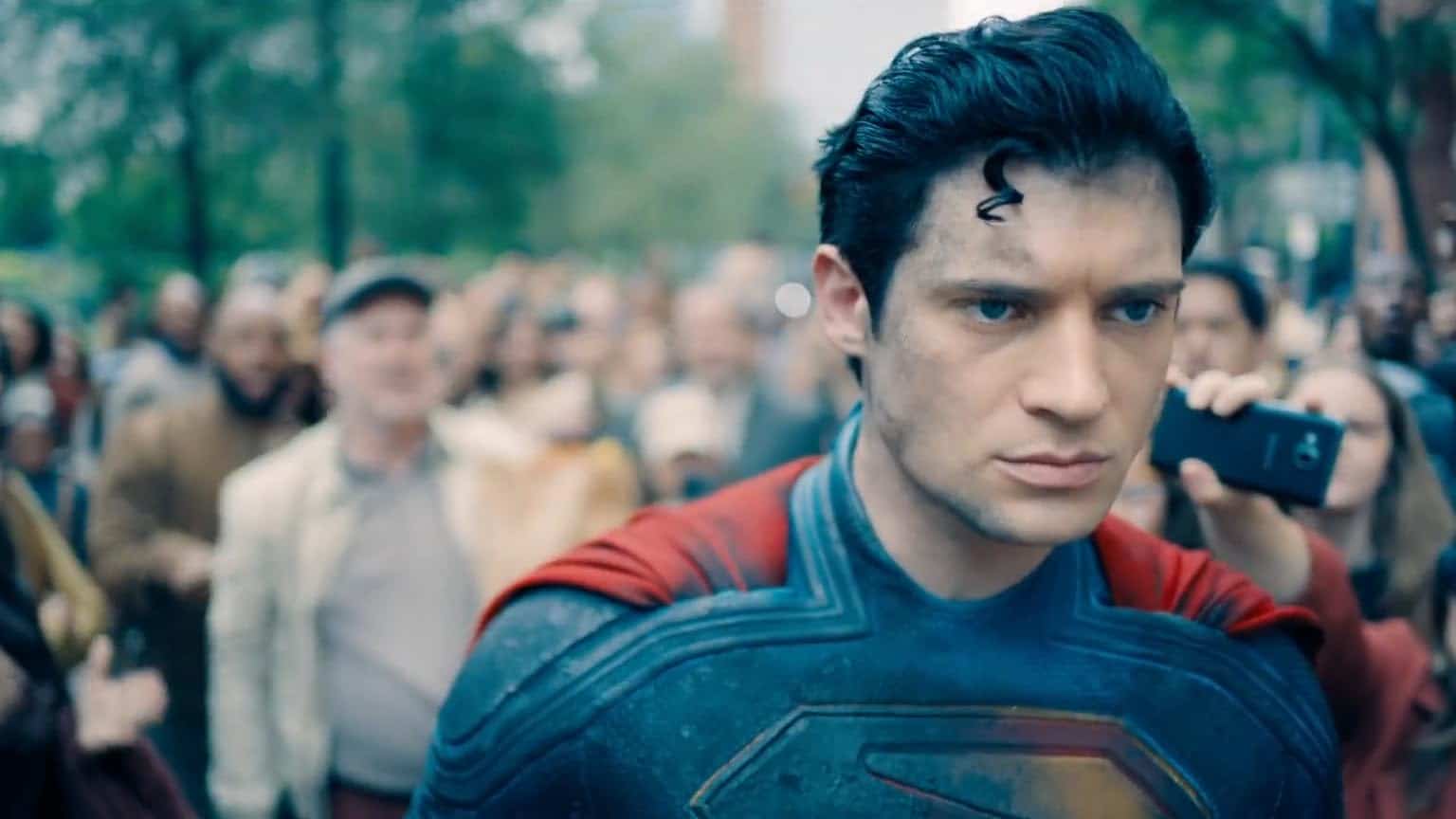Margot Waldman: It’s a strange thing to have a “Doctor-lite” episode in a season as short as this one is – but then, we had one last year in “73 Yards,” another ripped-from-the-headlines political drama (I’m not the first reviewer to compare these two episodes, not by a long shot)! I thought “73 Yards” was long on ideas but short on execution – I think it tried to be too much at once. Armaan, what did you think of it? It seems like one of the more polarizing episodes of the Disney era – but polarizing in a good way. There’s a lot to talk about.
Armaan: So I loved “73 Yards.” You’re right about it being polarizing, but it’s actually one of my favorite episodes of the Disney era. I was a little unsatisfied by its ending, but overall, it really drew me in. However, while there definitely is some overlap between “Lucky Day” and “73 Yards,” I believe we both agree on one thing: “Lucky Day” is much, much worse.
Margot: I guess for me the question with “73 Yards” was a formalistic one: Does folk horror really mesh with a political drama about the rise of a very British (well, Welsh) fascist? I didn’t think so, but Davies is such an entrancing storyteller that the story more or less clung together anyways. At the very least the second, political half sure did! Millie Gibson’s performance as an aging but never daunted Ruby going undercover was stellar – just as soulful, shaggy, doe-eyed Roger ap Gwilliam (Aneurin Barnard) made for a strikingly memorable monster. A snappy script and an unusually understated performance created the perfect kind of dissonance.
In this episode, the role of Roger ap Gwilliam is taken by podcast bro Conrad Clark (Jonah Hauer-King) – and I am afraid he does not rise to those same heights. It’s mainly a problem, for me, of the episode’s script – it was written by Pete McTighe, the writer of such seminal stories as “Kerblam!” and “Praxeus.”
I did have to stop for a moment after reading that, because oh. Oh dear. The writer of “Kerblam!” is back.
This does not bode well.
Armaan: It’s interesting that you bring up Roger ap Gwilliam, because that’s one of the points of comparison between “73 Yards” and “Lucky Day” that I would not have thought to have drawn a line between. Roger was a threat — and what’s more, an impersonal one. Ruby put herself on the line to stop him, yes, but more because Roger was a threat to everyone. He was a danger that was very real, a danger that had long-lasting effects. Conrad, in the meantime, was more of a PR threat to UNIT — and someone who betrayed Ruby on a very personal level.
The thing about Conrad is that he’s exactly who he’s meant to be: a weak-willed young white man who defines his entire life by what’s been denied him, someone who believes he’s entitled to everything. He believes he’s unfairly denied a ticket into the wider world of weirdness that the Doctor and UNIT deal with, he believes he’s entitled to be heard, he even believes it’s perfectly fine to manipulate and kill people as long as his priorities are being met.
He’s a cookie-cutter cutout of a lot of men you see online, men we’ve all seen for a very long time, and that’s by design. The problem for me isn’t so much that Jonah Hauer-King does not give us a good performance of that character, it’s that there’s nothing about the character that’s compelling.
Of course, another thing worth discussing is, if that kind of man is so commonplace, why is it that Ruby fell for his lies in the first place?
Margot: I mean, I don’t like to accuse things of being so-called “idiot plots.” It is a really very lazy way to criticize something you don’t like. It’s all very well to say, “I wouldn’t have done that,” but in the story in question, the character did. These sorts of plots spawn a whole cottage industry explaining why these characters might plausibly have done this – fans with a lot more time and sometimes a lot more knowledge of the IP love to trot out elaborate explanations why an action or a chronology is perhaps internally consistent when it seems not to be.
The problem is very simple, though. These actions are just not internally consistent with who we know Ruby to be.
Ruby, we are told, goes on five dates with Andrew Tate But He Doesn’t Hate Women He Hates UNIT. Five!
Why?
As we piece his backstory together, we learn Conrad practically drips deception and malice – and the way Hauer-King’s directed, anyone with half a brain can see it. One sort of imagines Ruby’s friends grimacing their way through her talking about how her boyfriend said meeting her was his “lucky day” (reader, I cringed) or complaining about how he’s not as cool as the Doctor. Ruby’s mom and grandmother ogle his shirtless Insta – did they not see him posting about how Daleks are fake?
Armaan: You may lose a little respect for me here, but Conrad did fool me — I did not see his betrayal coming. Were there red flags in him as a person? Absolutely. His hero worship of the Doctor is one that speaks less of admiration than it does of resentment, of someone who’s modeled himself after a version of the Doctor that Conrad’s lived his life wishing he could become. He pushes for romance, for Ruby’s attention, in ways that don’t sit right when you watch them (and even more so when you rewatch those moments). His refusal to drink the antidote, to believe he could handle himself even in the face of something he had no way of truly understanding, ignoring all advice to the contrary, speaks to everything that makes masculinity so toxic.
But red flags are always so much clearer in hindsight. Or they feel like minor inconveniences rather than warnings to stay away, at least at the time. I wanted this romance for Ruby — wanted to watch a story of her moving past the Doctor, finding a life for herself, like we saw her starting to do in “73 Yards.” I was willing to overlook the warning signs without a second thought because my focus was on the potential good.
I suspect Ruby felt similar.
It’s true that we’ve seen Ruby be consistently smarter than this, and this episode has dumbed down her decision-making skills for the sake of the plot — but it’s also true that in all those times, she was in unusual circumstances. It makes sense to me the possibility that despite all her talk of being on high alert, she’d let her guard down while living in a world without the Doctor. That she’d put aside her suspicious instincts while trying to make a life for herself in a more mundane world.
We’ve all had that friend who’s dated someone everyone else could clearly see was a complete idiot — and now we have Ruby, too.
Margot: That’s fair, and I really do see what you mean. I guess I was sort of poised to clock a guy like this as a baddie because he seemed so, so similar to Al the AI in “Robot Revolution” (which is another sort of awkward similarity).
And look, I really, really, hate to criticize art like this – it usually feels like laziness. But the thing is, the deception has to work for the episode to work – and the twist that Conrad is really a self-deluding creep only works if we don’t immediately dislike him. Unfortunately, I did – and so it wasn’t much of a shock at all. I’d be telling Ruby “I told you so” – presumably just after she gets her UNIT privileges stripped forever for being so incompetent and stupid. But, then, Kate Lethbridge-Stewart apparently failed to do a background check on a man who works for the most important organization in the world. So maybe they’ve agreed to hold their fire and both keep their jobs. What it does do, though, is quite a considerable amount of damage to both these characters. Ruby is näive, we learn, clueless; Kate Stewart (Jemma Redgrave; still probably the best thing about the episode) is both incompetent and seemingly bloodthirsty.
For all this, there’s something to the concept here. The idea of misinformation coming for the Whoniverse has some merit – even if we have seen it before. It’s not hard to imagine people simply refusing to believe an alien is an alien – that’s a device Russell T Davies has offhandedly used before, as I recall, that cynicism and skepticism eventually restore the timeline and gradually make a robot siege a short Wikipedia footnote. It’s not impossible – and in fact, it makes sense – to imagine that some people would dislike or fear or not believe UNIT. Historically they have lied constantly, after all, and as much as I like the Vlinx, he does not exactly have any sort of civilian oversight.
Armaan: I agree, the concept is intriguing. UNIT is not an organization that’s ever had my complete trust, and as you point out, they have no civilian oversight. I have no idea how much I’d be willing to believe in aliens myself without consistent, undeniable proof, and UNIT holds its cards close to the chest. They have designated themselves the protectors of Earth, believe themselves the only ones capable of dealing with their alien technology with complete morality, have failed to establish whether aliens even exist despite receiving very sizable government funding (that giant building they operate out of can’t come cheap) — and, as this episode shows, they’re not the most competent of organizations, either.
There are a lot of valid criticisms concerning UNIT. This show very lightly touches on them, but all those criticisms come from the mouths of very unlikeable people. The episode fails to make any of those criticisms compelling, and as such, it fails to make an episode centered on those criticisms compelling as well.
Margot: Davies has often shown us there are reasonable reasons to question how UNIT operates, at the very least that it’s worryingly military. The 10th Doctor refusing to salute, refusing to be a soldier for them, is one of the most formative moments for them.
UNIT is sort of a distraction, though, I guess, because it’s, yes, a metaphor. UNIT here is a deeply imperfect metaphor or stand-in for … whatever it’s meant to be standing in for (also, because in this episode it somehow gets doxxed). The metaphor at play is simply not coherent. Is Conrad meant to be an Andrew Tate type – we’re told he’s a compulsive fraudster who’s leveraged his notoriety for a minor real estate empire, like Tate (in possibly the only interesting bit of characterization Conrad receives, he’s also said to be supporting his seemingly abusive mother). Or is he a TikTok pseudoscientist? The image of body cameras and recording that pervades the latter half of the episode is troubling – as an American, I immediately think of these as a tool against police brutality, but the episode positions them as a kind of blackmail against authority.
In the end, Conrad getting gored by an alien coyote seems to do the trick and get everyone back on UNIT’s side. An attractive white woman doing a cool stunt helps, too – but he’s still unconvinced. That, I admit, is also interesting – that for all his self-interest, he’s also a dogged true believer in his conspiracism. The Doctor and Ruby both mouth some vague speeches about being unable to move on and then, mercifully, we do.
Armaan, I thought this was the worst episode of the series, and maybe the worst episode of the Disney era. It certainly had the least to offer and felt the most out of place. What do you think?
Armaan: I agree with you that it’s the weakest one, by far. Our villain, uncompelling. Our heroes are Kate, Ruby and, of course, the Doctor (limited appearance though he may get, it is still his show). Ruby is far too easily duped. Kate shows frankly horrifying levels of incompetence and terrible decision making. For an organization that’s posed to protect the Earth against advanced alien threats, it should not be that easy for a lone gunman (even one with an inside man) to be able to infiltrate their main HQ. Once he does, Kate’s actions turn the situation from bad to worse. She’s goaded into action with laughable ease. She releases a dangerous alien that Conrad is not equipped for just to prove a point, escalating the situation and putting everyone there at risk. A guard points out she crossed the line, but it’s a blink-and-you-miss-it thing that’s brushed aside so we can see her and Ruby have a heartwarming paternal moment together that feels entirely unearned.
Lastly, we have the Doctor, who swoops in to do nothing but lecture Conrad to no real effect. Not even Ncuti Gatwa can save this monologue from feeling flat and preachy. It’s an empty rant against an uncaring foe, accomplishing nothing, making the Doctor seem like someone who does not understand what he’s up against.
That’s human. The Doctor is allowed to have moments where he doesn’t quite understand his opponent, but the way he swoops in at the end here for the final lecture frames the Doctor as someone of infallible moral authority, and it comes across as empty.
There was a lot this episode could have been, so I’m not entirely upset about the idea that Conrad might be back in a future episode. I just hope to high heavens there’s a better writer handling him when he does.







